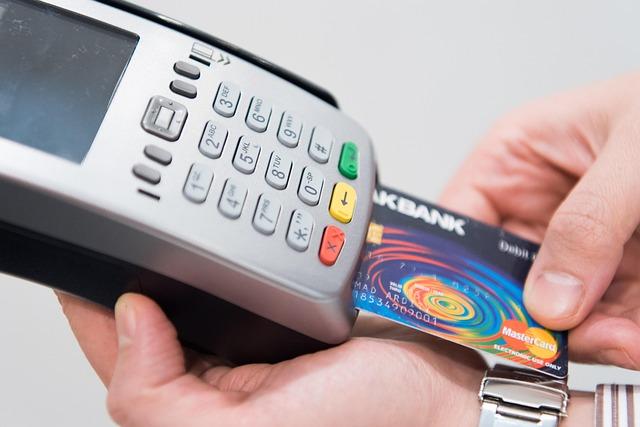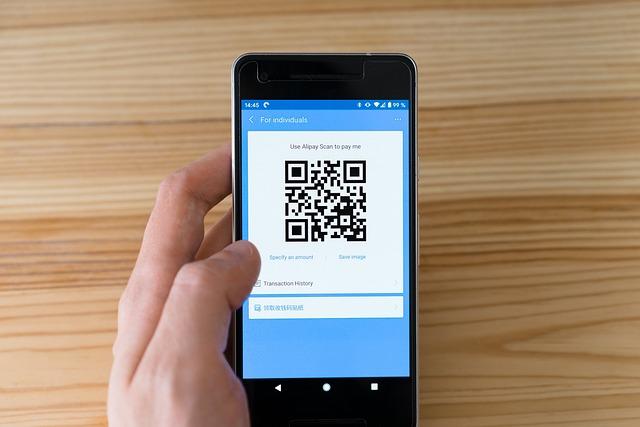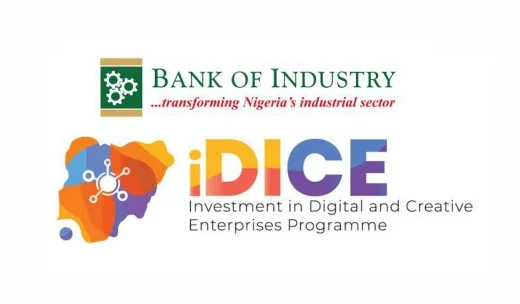Nigeria Leads International Shift from Money to Virtual Bills - Africa.com
As the sector navigates an an increasing number of virtual panorama, Nigeria is rising as a leader in the transformative shift from money to virtual bills. With its burgeoning inhabitants, rapid technological adoption, and a tender, dynamic team of workers, the contry is redefining the monetary panorama now not simply inside of its borders, however around the African continent. Contemporary trends in cell banking, fintech inventions, and goverment tasks are catalyzing this trade, propelling Nigeria to the leading edge of the virtual bills revolution. On this article, we will discover the standards riding Nigeria’s management on this international shift, the demanding situations it faces, and the results for financial enlargement and fiscal inclusion throughout Africa.
Nigeria is on the vanguard of a digital payment revolution, reworking the way in which monetary transactions are carried out and atmosphere a precedent for the remainder of Africa. The surge in cell banking and fintech answers has empowered tens of millions, facilitating seamless financial exchanges and extending monetary inclusion. With over 60% of the inhabitants now having get right of entry to to cell wallets,the nation’s virtual fee ecosystem boasts more than a few leading edge platforms,pushed via each native startups and international tech giants. Key gamers like Paystack, Flutterwave, and interswitch have presented user-amiable answers that let customers and companies to transact easily. This shift from money to virtual codecs is not just expanding financial job however additionally contributing to bigger readability and safety inside of monetary transactions.
The affect of this alteration extends past Nigeria’s borders, offering a style for different African countries to emulate. Nations with historically restricted get right of entry to to banking products and services have begun to take a look at Nigeria’s manner, because it competes to cut back reliance on money. Some possible advantages come with:
As those adjustments take root, the collaboration between public coverage and personal sector innovation will end up the most important in navigating the demanding situations that accompany this virtual shift. With the proper backing, Nigeria may function a catalyst for Africa’s broader financial transformation, championing an technology of virtual interconnectedness and fiscal empowerment.

The acceleration of nigeria’s shift against virtual bills is powered via a number of important elements. At first, the proliferation of cell era has made get right of entry to to virtual monetary products and services extra possible for a broader inhabitants. With over 50% of Nigerians proudly owning smartphones, platforms like cell banking and e-wallets have grow to be extra out there. This surge in smartphone possession is complemented via larger web penetration, enabling customers to behavior transactions anytime and any place. Moreover, the more youthful demographic, which constitutes a big section of the Nigerian inhabitants, is extra susceptible against embracing virtual answers over standard banking strategies.
Moreover, executive tasks aimed toward bettering monetary inclusion are pivotal in this transition. Methods aimed toward selling cashless transactions are being applied, regularly sponsored via regulatory our bodies just like the Central Financial institution of Nigeria. With incentives corresponding to lowered transaction charges for virtual bills, along a countrywide ID device to simplify consumer identity, those efforts fortify client self assurance within the virtual ecosystem. Additionally, the emergence of fintech corporations has presented leading edge products and services, riding festival and in the long run making improvements to the standard of virtual transaction platforms. This atmosphere fosters a dynamic market the place customers can thrive in a cashless economic system.

The upward thrust of digital payment solutions in Nigeria has performed a transformative function in bettering monetary inclusion around the country. As extra voters acquire get right of entry to to smartphones and the web, conventional boundaries such as geographical distance and banking charges are being decreased. This shift has enabled underserved populations, together with the ones in rural spaces, to interact with monetary products and services that had been prior to now inaccessible. Key benefits of this virtual evolution come with:
Additionally,the mixing of digital payment systems has been pivotal in selling entrepreneurial actions. Small and medium enterprises (SMEs) can now settle for bills digitally, facilitating a smoother drift of trade and inspiring extra folks to get started companies. The demographic shift against virtual bills has additionally resulted in inventions in monetary merchandise adapted for more than a few revenue segments. Proof of this affect is observed within the following desk:
| Virtual Fee Answer | Monetary Inclusion Have an effect on |
|---|---|
| Cellular Cash | Allows cashless transactions even and not using a financial institution account. |
| Level of Sale (POS) Programs | Facilitates bills at native distributors, expanding money drift. |
| On-line Banking | supplies simple get right of entry to to banking products and services 24/7. |

Nigeria’s transition to a virtual fee ecosystem is fraught with more than one demanding situations that impede the entire realization of its possible. One vital factor is the infrastructure hole, particularly in rural spaces the place web connectivity stays inconsistent. This disparity prevents manny Nigerians from taking part within the virtual economic system, thereby proscribing the marketplace achieve for virtual fee answers. Moreover,the lack of monetary literacy amongst a good portion of the inhabitants exacerbates the state of affairs,as many people are both blind to the to be had virtual fee choices or lack the boldness to undertake them.
Some other main hurdle is safety issues surrounding virtual transactions. Cybercrime is an expanding danger, with many people cautious of the security of their private and monetary information. Coupled with this is the problem of regulatory frameworks, which regularly sufficient lag at the back of technological developments. Efficient regulation and coverage measures are very important to construct client consider and safeguard customers towards fraud.As those problems persist, stakeholders will have to collaborate to create sustainable answers that cope with those boundaries.

To bolster Nigeria’s virtual fee infrastructure, a multifaceted manner is very important. First, bettering regulatory frameworks may give readability and safety for customers and provider suppliers alike. Organising pointers that facilitate interoperability between other fee platforms can make sure that seamless transactions, making improvements to buyer reviews. Moreover, making an investment in cybersecurity measures is paramount, given the expanding occurrence of virtual fraud.Coaching techniques designed for each end-users and fiscal establishments can lift consciousness in regards to the significance of keeping up safe virtual practices.
Moreover, the federal government will have to imagine incentivizing funding in virtual fee applied sciences thru tax breaks and grants for startups and current corporations riding innovation on this sector. A focal point on bridging the urban-rural divide via increasing web get right of entry to and cell networks in underserved spaces is significant for inclusion.Collaborations with international tech corporations can additionally result in wisdom switch and fortify the abilities of native innovators. fostering a tradition of monetary literacy amongst customers will empower people to embody virtual bills with a bit of luck.

The long run of virtual bills in Nigeria is poised for vital developments, pushed via a aggregate of technological innovation, regulatory beef up, and an an increasing number of tech-savvy inhabitants. As cell web penetration continues to upward push, extra Nigerians are anticipated to interact with virtual fee platforms, leading to a shift now not best in client habits but additionally in the whole monetary panorama. Key elements influencing this transition come with:
Past Nigeria, the ripple results of this virtual transformation can be seen around the African continent or even globally. As countries follow Nigeria’s good fortune, they’re prone to begin their very own reforms in fee methods. This domino impact can foster an atmosphere conducive to innovation, growing alternatives for cross-border transactions and bettering business relationships.A comparability of decided on African countries embracing virtual fee methods illustrates this burgeoning development:
| Nation | Virtual Fee Adoption Fee | Key Gamers |
|---|---|---|
| Nigeria | 75% | Paystack, Flutterwave |
| Keny | 70% | M-Pesa |
| South Africa | 80% | SnapScan, Zapper |

as Nigeria forges forward within the transition from money to virtual bills, its function as a pace-setter on this important international shift is changing into an increasing number of obvious. the rustic’s leading edge answers,tough regulatory framework,and rising fintech ecosystem don’t seem to be best reworking the monetary panorama regionally but additionally atmosphere a formidable instance for different countries throughout Africa and past.
This migration to virtual bills symbolizes a broader development of modernization in monetary methods, making transactions extra environment friendly and out there whilst fostering financial enlargement. As Nigeria continues to embody era, the long run of bills and fiscal inclusion seems promising, positioning the country as a beacon of development within the virtual age.
With evolving client behaviors and expanding funding in era, Nigeria’s adventure is a ways from entire. Then again, the strides already made divulge the immense possible of virtual bills to reshape economies and fortify livelihoods. As stakeholders collaborate to additional innovate and beef up this shift, the sector will unquestionably be looking at Nigeria’s subsequent steps in main the fee towards a extra digitized monetary long run.











